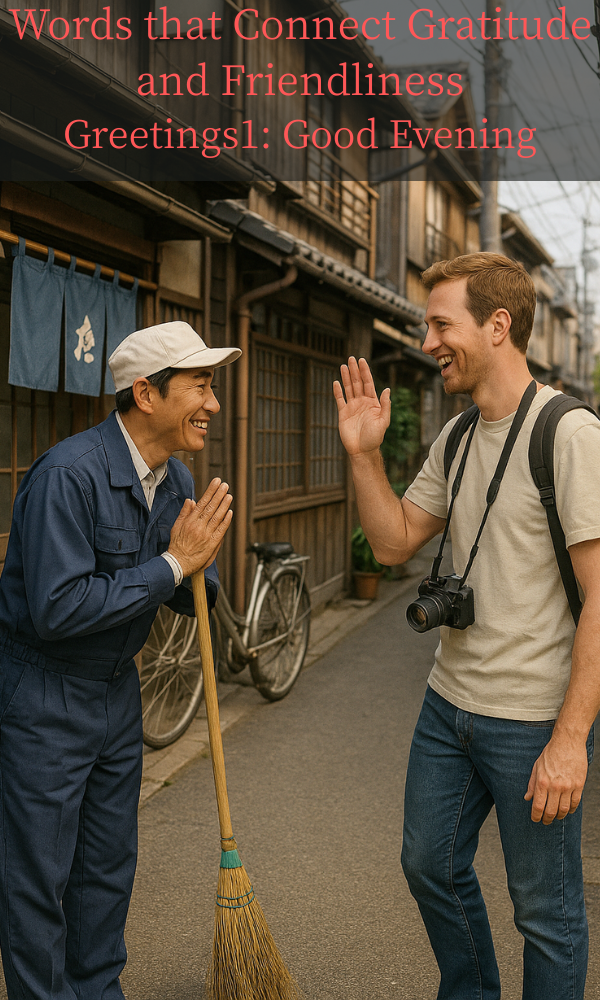
This article is
People who want to know basic Japanese greetings
People who want to know when to use that greeting
That’s what this article is about.
Continued from the previous issue, I will define this part’s greeting 1.
In this article, I will write about the most basic greeting, konbanha.
Index
Good Evening- こんばんは”Konbanha”
When to use: From evening to night, when greeting someone.
Question and Answer
Q: Which is the Correct Expression? こんばんは”Konbanha” / こんばんわ”Konbanwa”
A: Same as こんにちは”Konnichiha” in the previous article.
The same can be said for “こんばんは’Konbanha'”.
“Tonight is a good day, isn’t it?. 今晩はいい日ですね’Konban ha ii hi desune'”
It is also an abbreviation of this word.
Foreigners’ Reactions Based on Actual Experience
I think you can learn more about Japanese greetings from what I experienced before and from the experiences I heard from friends.
“When is it time to say ‘Konbanha’ in Japan?”
My Brazilian friend Leo was learning Japanese and loved practicing greetings.
One day, around 5:30 PM, he proudly greeted a group of people with,

Konbanha!
But one of them said,

Ah, you’re a bit early. It’s still “Konnichiha” time.
Later, he asked me,

So, when does it switch from “Konnichiha” to “Konbanha”?
I told him,

There’s no strict rule, but usually after sunset or around 6 PM. It depends on the light and the mood.
He laughed and said,

So I have to watch the sky before saying hello?
I hear that, so I said.

Pretty much. Welcome to Japan!
This hands-on experience will help you understand how demanding the timing of Japanese greetings, like konnichiha, can be.
Conclusion
Today’s topic is the most basic conversation, konbanha.
I think I have learned how demanding the timing of greetings in Japanese can be.
In this case, the most basic greetings, such as “Konbanha” were explained.
Next, I will introduce the evening to night greeting, oyasumi!
Please look forward to it.
Links to each part are provided.
Cultural Differences, Good morning, Hello, Good night
P.S.
“Konbanha” is used less frequently than “Ohayou” and ”Konnichiha”. It is not used for family members as well as hello, and it is used for people you meet in the evening and night.
It is used more often in texts on social networking sites than in face-to-face conversations.
Follow us and you won’t miss any blog updates.
またね(Matane)!



コメント